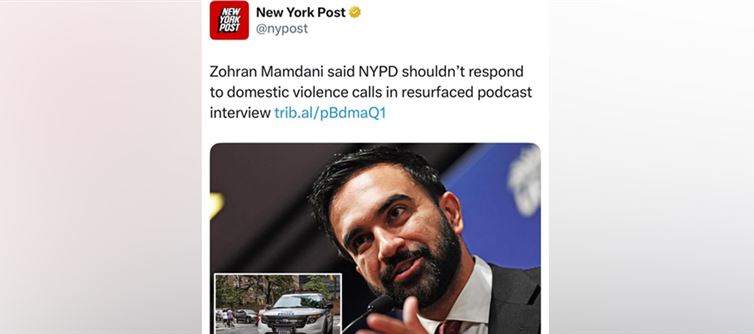
In the podcast interview, originally recorded and now brought back into public discourse, Mamdani, a Democratic Socialist and current New York State assembly member, argued that the NYPD should not handle domestic violence incidents. The New York Post article, accessible via the provided link (trib.al/pBdmaQ1), details how this stance reflects his broader push for reimagining public safety infrastructure. The image accompanying Dr. Maalouf’s post shows Mamdani mid-speech, gesturing emphatically, with an NYPD patrol car in the background, symbolizing the clash between his views and the department’s current practices.
Mamdani’s position aligns with a wave of progressive policing reforms that gained traction following the 2020 George Floyd protests, advocating for specialized agencies or social services to address domestic issues rather than armed police. This stance comes at a critical time as he campaigns to become New York City’s mayor, a role that would place him at the forefront of shaping the city’s law enforcement policies. The NYPD, which responded to over 100,000 domestic violence incidents in 2024 alone, represents a significant part of the city’s safety apparatus, making Mamdani’s suggestion a bold and divisive proposal.
Dr. Maalouf’s post, which includes the New York Post screenshot, frames the statement as a red flag, hinting at deeper implications. Subsequent replies in the X thread amplify this concern, with users like Emilia Henderson linking it to Sharia law, suggesting that Mamdani’s views might tacitly support spousal abuse—a claim not directly supported by the podcast but reflective of broader anxieties. Others, such as Dark Mode, criticize him for allegedly green-lighting wife-beating under the guise of progressive excuses, while more balanced voices like starTR argue that Mamdani’s intent was to advocate for better-trained specialists, not to dismiss the issue entirely. The debate has polarized opinions, with some seeing it as a call for reform and others as a dangerous overreach.




 click and follow Indiaherald WhatsApp channel
click and follow Indiaherald WhatsApp channel